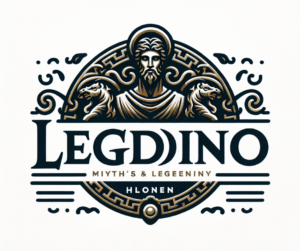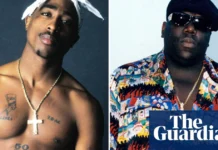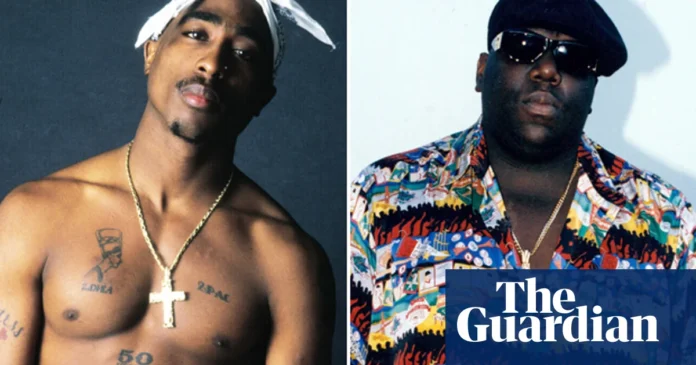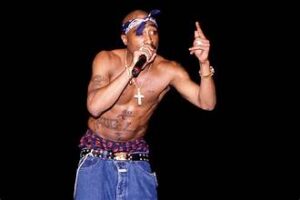The life and legacy of Tupac Shakur have continued to captivate millions worldwide, more than two decades after his untimely death in 1996. Tupac, one of the most influential rappers of all time, is remembered for his poetic lyrics, raw authenticity, and social activism. However, his death at the age of 25 has spurred numerous conspiracy theories, with one of the most persistent being his alleged connection to the Illuminati—a shadowy, secretive organization rumored to control world events. Over time, this theory has evolved, reflecting societal changes and the public’s fascination with celebrity and mystery. This article explores how the Illuminati theory related to Tupac Shakur has transformed over the years and its broader implications on pop culture and conspiracy theories.
The Origins of the Tupac Illuminati Theory
Tupac’s Life and Death
Tupac Amaru Shakur was a revolutionary figure in the world of hip-hop. His music addressed social inequalities, racism, and poverty, making him a voice for the disenfranchised. His growing fame, however, was tragically cut short when he was shot in a drive-by shooting in Las Vegas in September 1996. To this day, the case remains unsolved, fueling rumors and speculations about who was responsible for his death.
Almost immediately after his murder, theories emerged questioning the official narrative, and one of the most popular and persistent involved the Illuminati, an alleged group of elites controlling world governments and events.
The Introduction of the Illuminati to Pop Culture
The Illuminati conspiracy theory has roots going back centuries, but it began gaining popularity in the 20th century. The modern iteration of the Illuminati, especially its association with celebrities, took hold in the 1990s and early 2000s. In the realm of hip-hop, Tupac Shakur’s death coincided with the rise of the theory, with some claiming that the Illuminati was involved in his murder due to his growing influence and refusal to conform to societal norms.
Tupac’s “Killuminati”
Interestingly, Tupac himself referenced the Illuminati, but not in the way conspiracy theorists suggest. Before his death, Tupac recorded an album under the pseudonym Makaveli titled The Don Killuminati: The 7 Day Theory. The word “Killuminati” was a blend of “kill” and “Illuminati,” a term he used to represent his defiance against the idea of a controlling power structure. Tupac was dismissing the notion of the Illuminati’s power, urging people to focus on the real issues of systemic oppression and social injustice. Ironically, this led to further speculations after his death, with some claiming that Tupac’s exposure of the Illuminati was the reason behind his assassination.
The Evolution of the Tupac Illuminati Conspiracy Theory
Posthumous Fame and the Rise of the Internet
In the years following Tupac’s death, his fame only grew, with posthumous albums and documentaries keeping his legacy alive. Meanwhile, the internet emerged as a fertile ground for conspiracy theories. As platforms like YouTube and message boards became widespread, the Tupac-Illuminati theory evolved, with users analyzing his lyrics, music videos, and interviews for hidden messages that supposedly linked him to the secretive group.
The theory also expanded to include other celebrities, with fans scrutinizing various famous figures for signs of Illuminati membership. Symbolism in music videos, lyrics, and even hand gestures were interpreted as signs of Illuminati influence. Tupac’s use of religious imagery, his close association with political figures, and his untimely death provided fuel for these conspiracy fires.
The “Tupac Is Alive” Subplot
Another element that contributed to the Illuminati theory was the persistent belief that Tupac faked his death. Proponents of this theory argue that Tupac, aware of the Illuminati’s supposed plans, staged his own death to escape their control. They point to the lack of arrests, the mysterious circumstances surrounding his death, and his posthumous success as proof. In this narrative, Tupac lives in hiding, waiting for the right moment to return and expose the truth about the Illuminati.
Social media and websites dedicated to Tupac have kept this theory alive, with fans continuing to dissect his work and public appearances in search of clues. The Illuminati narrative weaves in seamlessly with this subplot, reinforcing the idea of a vast, hidden conspiracy.
The Role of Hip-Hop Culture and Symbolism
In hip-hop culture, where the line between fiction and reality is often blurred, symbolism plays a significant role. Artists frequently use provocative images and metaphors to captivate their audience, and Tupac was no exception. His references to the Illuminati and his fascination with spirituality and political themes created an aura of mystery that conspiracy theorists have exploited. Tupac’s tattoos, for instance, are often scrutinized by theorists, particularly his MOB tattoo, which some claim stands for “Member of Bloods” while others speculate it has hidden meanings linked to the Illuminati.
Moreover, the broader culture of hip-hop and its tendency to challenge the status quo made it fertile ground for conspiracy theories. Figures like Jay-Z, Kanye West, and Beyoncé have also been linked to the Illuminati theory, with fans claiming that their meteoric rise in fame must be tied to a secretive, powerful group pulling the strings.
Why Do People Believe in the Tupac-Illuminati Theory?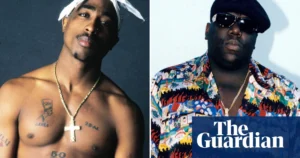
Distrust of Authority
One of the key reasons conspiracy theories like the Tupac-Illuminati connection thrive is the general public’s distrust of authority. Tupac himself was vocal about corruption in government, systemic racism, and the manipulation of the masses by those in power. His socially conscious lyrics and rebellious image made him a symbol of defiance. For many, it’s not a stretch to imagine that powerful groups like the Illuminati would want to silence such a voice.
The Mystery of Tupac’s Death
The unresolved nature of Tupac’s murder is another factor that perpetuates conspiracy theories. With no arrests or concrete answers, fans have been left to their own devices to speculate on what happened. This lack of closure fuels alternative narratives, as people search for meaning in the absence of official explanations.
Pop Culture and the Need for Narrative
The idea of a powerful, secret organization controlling world events is a seductive narrative. It simplifies complex societal issues and offers a convenient scapegoat for injustices, particularly in the entertainment industry. Additionally, humans have a natural desire for storytelling and resolution. In a world where life can often seem chaotic and random, conspiracy theories provide structure and a sense of control, offering an explanation for the unexplainable.
The Impact of the Illuminati Theory on Tupac’s Legacy
Myth vs. Reality
While the Tupac-Illuminati conspiracy theory has undoubtedly kept his name in the public eye, it can obscure the real issues that Tupac cared about. His life’s work was dedicated to addressing systemic inequality, violence, and racial injustice—issues that still resonate today. The focus on fantastical conspiracies can detract from the powerful messages in his music and activism.
The Future of the Theory
As conspiracy theories continue to evolve in the digital age, it’s likely that the Tupac-Illuminati connection will persist. With each new generation of fans, the theory is reinterpreted and reshaped. However, it’s essential to separate fact from fiction and to remember Tupac for the revolutionary artist he was, rather than as a pawn in a speculative secret society.
Conclusion
The Illuminati conspiracy theory surrounding Tupac Shakur has evolved over the past two decades, reflecting both societal changes and the public’s ongoing fascination with celebrity and secrecy. While these theories may offer entertainment or intrigue, they often overshadow the real issues Tupac sought to address in his music and activism. As we look back on his legacy, it’s crucial to honor his contributions to hip-hop and social justice rather than indulge in unsubstantiated claims.
